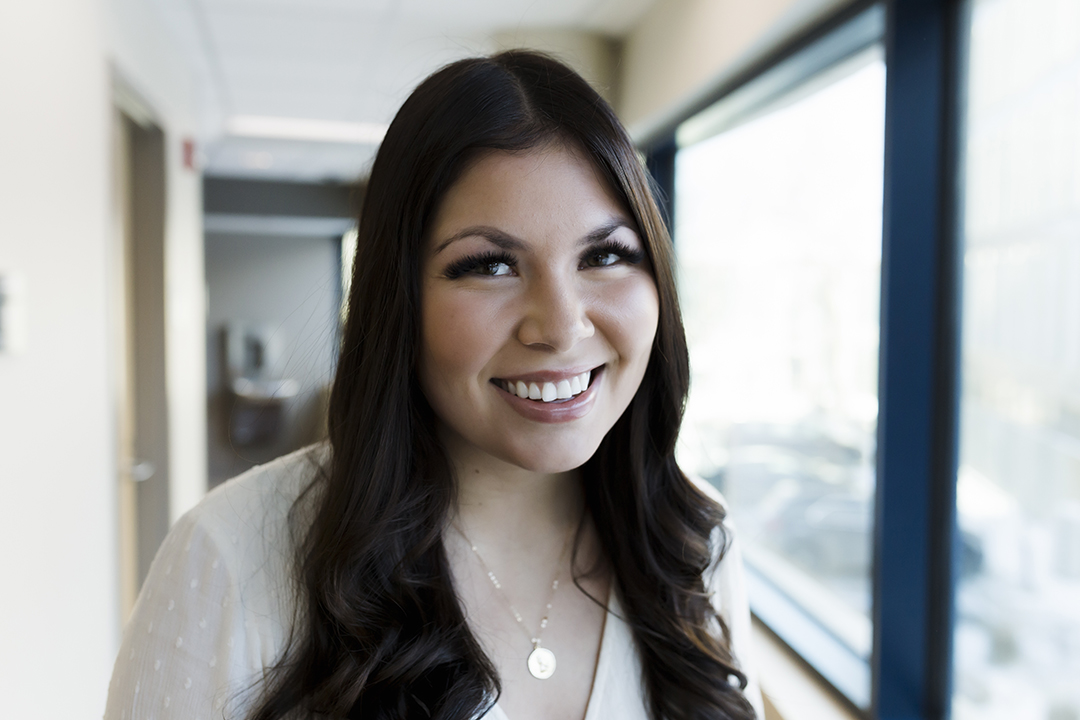
Indigenous knowledge systems contribute to harmonious relationships, says psychology student
In a few years Bailee Brewster hopes to be helping people navigate the law, but for now she’s focused on the mind.
By Ashley Sharp and John ShellingBrewster, who is from Prince Albert, is completing her three-year psychology degree in the College of Arts and Science. After completing her degree she plans to study law at the University of Saskatchewan (USask) and then return home and provide equitable legal representation for members of her community.
Brewster will receive an award for academic excellence at this year’s Indigenous Student Achievement Awards on Feb. 6. She has obtained the highest average among St. Thomas More’s Indigenous student body. Indigenous students from across USask will be honoured at a ceremony to recognize their academic excellence, leadership, research endeavours or community engagement.
The award ceremony is part of Indigenous Achievement Week (IAW), which celebrates the successes and contributions of Métis, First Nations and Inuit students, staff and faculty. The festivities include a public art project, speakers and celebrations in various locations across campus.
We asked Brewster a few questions about her time at USask and what motivates her.
Why did you pick psychology as your major?
Psychology has always fascinated me. Gaining a scientific understanding of the mind and ways in which it governs behaviour is intriguing, both in an individual and social context. The vast array of psychology courses available to students like myself was a determining factor in selecting psychology as my major; there are so many different topics to explore.
If you could pick one practice that has helped you stay motivated over the course of your studies, what would it be?
For me, recognizing that you must take time for yourself allows me to stay motivated and excel in my studies. Whether it be spending time with family and friends, or simply taking a break, a balance between academics and my social life is vital to ensure I am able to do my best.
Has there been someone in your life who has inspired you to get to where you are today?
My mother, Keri. She has always been such a supportive influence in my life. I would not be where I am today without her presence.
After obtaining your law degree, what do you hope to do within Aboriginal law and family law?
My hometown of Prince Albert is home to a large number of Indigenous peoples. I ultimately wish to return home to advocate for and provide equitable legal representation to members of my community.
This year’s Indigenous Achievement Week theme is Indigenous knowledge systems. How can Indigenous knowledge systems improve the society we live in? live in?
To foster a society that genuinely embodies reconciliation, each individual must educate themselves on the beliefs, practices, languages, and kinship networks of Indigenous peoples. I believe that the Indigenous community on campus and Gordon Oakes Red Bear Center provide an opportunity for individuals of different backgrounds to educate themselves on various Indigenous ways of being. The increasing presence of Indigenous students on campus is fundamental to educating ourselves on Indigenous relations and ultimately passing this knowledge onto others. Education of Indigenous knowledge systems will contribute to harmonious relationships with one another, within our community, and with the Canadian government.

